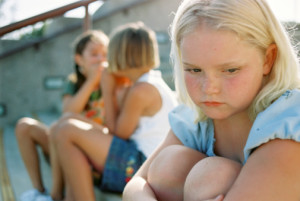Whether we recognize it or not, one of the most difficult aspects of growing up is dealing with the complex  world of cliques. Parents want to help their children but are often unsure of how or when to get involved.
world of cliques. Parents want to help their children but are often unsure of how or when to get involved.
What are cliques? Cliques are groups of friends, but not all groups of friends are cliques. What makes up a clique is when they leave some kids out of the group on purpose. Typically, one or two popular kids control who gets to be in the clique and who gets left out. Once in a clique, children may act much differently than they did prior. One of the most difficult things about cliques is when old friends begin treating each other differently. Sometimes, the problem starts with an argument between the two. Kids in groups sometimes act differently than they would outside the group. They often go along with what the others are doing, even if they know it’s not right, even if it means leaving out a friend. Some kids might even feel sorry about the way they are treating other kids, but can’t figure out how to be cool while also being nice to the person who’s not part of the clique. But that’s no excuse. Plenty of kids manage to be nice to everyone without being part of a clique.
We start seeing friend groups become more problematic when they become too exclusive and/or unwilling to engage nicely with other friends outside of the group or purposefully leave others out. Unfortunately, cliques will always be present. It’s something kids have to deal with, so it’s important that parents educate their kids and teach them how to navigate through those situations.
What do you tell kids who are feeling like they are being left out by a clique?
As a parent, you should be concerned about cliques and should get more involved when there are indications that bullying is occurring. If you happen to know the other parents involved, it can be helpful to discuss the situation with them and how to move forward. If you don’t, focus on your child and teach them how to move forward. Most importantly, be aware of how your actions might impact your child both in words and behaviors. If you trust that you are teaching a positive message, then can’t go wrong.
Children in cliques tend to grow up to be adults in cliques. Interesting read.